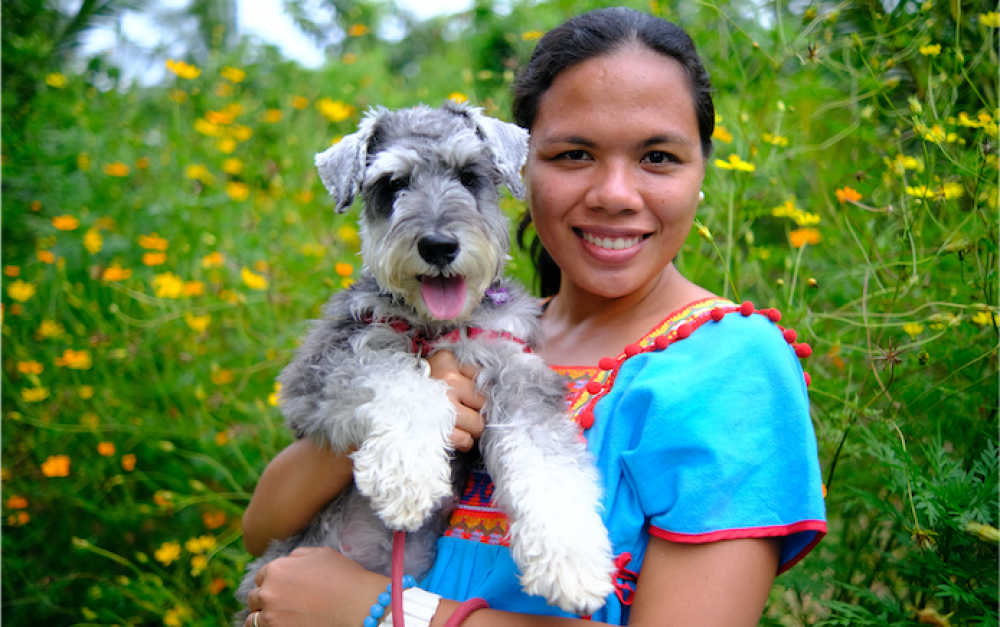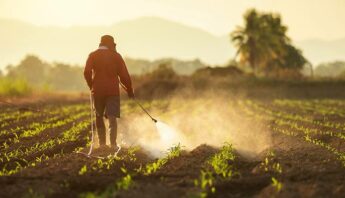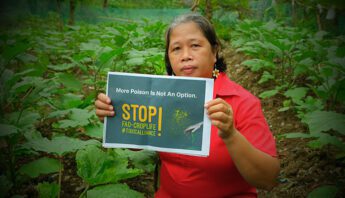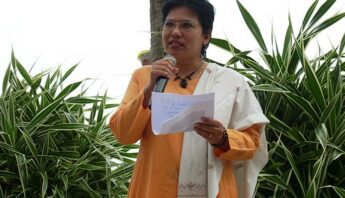We recently chatted with PAN Asia Pacific’s communications officer Ilang-Ilang Quijano, based in Manila, Philippines, to learn more about her background, current work, and vision for the future of food and farming. Enjoy!
We recently chatted with PAN Asia Pacific’s communications officer Ilang-Ilang Quijano, based in Manila, Philippines, to learn more about her background, current work, and vision for the future of food and farming. Enjoy!
How long have you been involved with PAN? What were you doing before?
I have been PAN Asia Pacific’s communications officer since 2019. Before that, I was working as an editor and multimedia producer for Altermidya, a non-profit media organization in the Philippines covering social movements.
What brought you to your work with PAN? Do you have a background in food and farming?
My involvement with PAN dates back to two decades ago when my father, toxicologist Dr. Romeo Quijano, asked me to co-author an investigative story on pesticide poisoning of villagers in a banana plantation company in Davao del Sur, Mindanao (Southern Philippines). I was a university student at that time, and it was my first article published in a national daily newspaper. We were sued for libel by the company—the case dragged on for more than a decade, and sparked a local and global campaign against aerial spraying of pesticides.
That launched my interest in advocacy journalism, which became a main focus for me. I covered farmers’ issues extensively, especially their struggle for land reform and against neoliberal globalization. At the same time, I was involved in PANAP—mostly through writing and photography (e.g. documenting human rights and environmental fact-finding missions), as well as spearheading media work for events such as the Permanent People’s Tribunal on Agrochemical TNCs in Bangalore, India. I’ve also made video documentaries, including one on the poisoning of ex-workers of the International Rice Research Institute headquartered in the Philippines (IRRI was the launching pad of the Green Revolution).
What current PAN work or campaigns are you energized around?
I’m currently co-coordinating a campaign with PANNA’s Organizing Co-Director Simone Adler to stop the FAO’s egregious partnership with CropLife International, the association and lobby group of the world’s biggest pesticide manufacturers. I think the corporate capture of the UN and other international institutions is cause for alarm and will greatly impact our work trying to eliminate hazardous pesticides.
Is there a recent achievement or progress in your work that you’d like to share?
I was on the communications team of the Global People’s Summit on Food Systems—the Global South’s counter-summit to the corporate-led UN Food Systems Summit—for a good part of the year. I saw how small farmers and rural peoples across the world are pushing back against neoliberal policies that devastate their lives and livelihoods. Despite the challenges of the pandemic, so many have been inspiring, organizing and mobilizing to reclaim the future of farming.
What does your vision of a healthy, just food and farming system look like?
A food system that works for the people and the planet should first and foremost be free from the interests of private capital. As long as corporations run the world, we can never have control over what kind of food is grown and how. In the Global South, peasants are increasingly losing land and access to resources. A healthy, just food system is one where people fully control the means of production and are liberated from the rules of capitalism.







